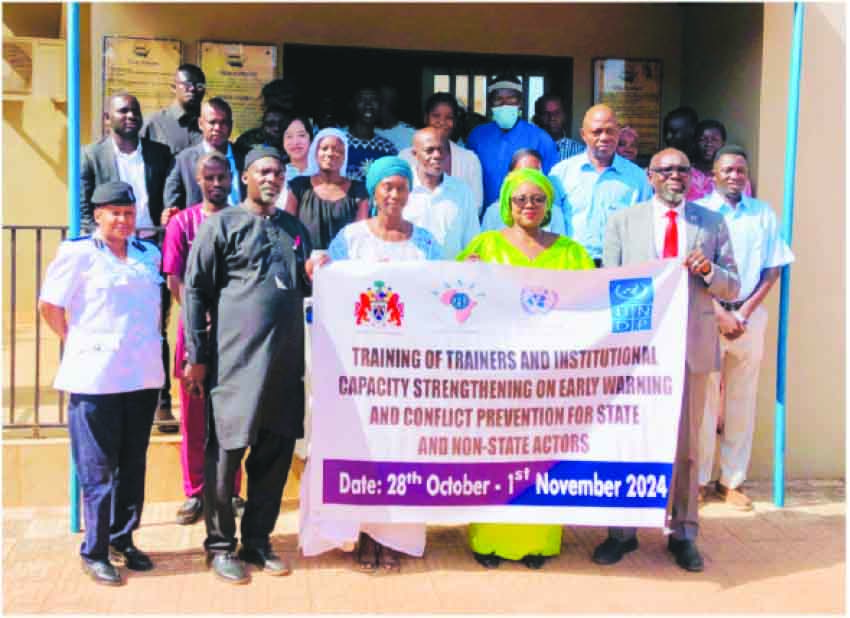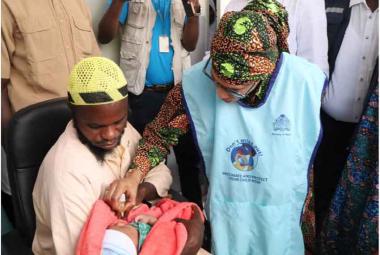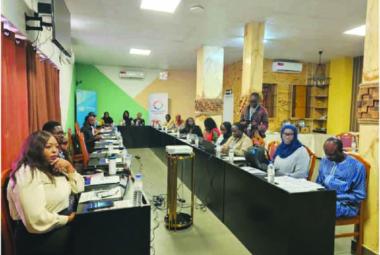By Bubacarr Gaye
The Ministry of Interior (MoI), in collaboration with WANEP-The Gambia, with support from UNDP and the UN Peace Building Fund, on Friday, 1st November 2024, concluded 5-day trainers’ training on Community-based Early Warning and Response Actions, held at NAQAA, in Kanifing. The theme of the training was: “Training of Trainers and Institutional Capacity Strengthening on Early Warning and Conflict Prevention for State and Non-State Actors”. The aim is to strengthen local capacities for conflict prevention by building the knowledge and skills of institutions and developing close collaboration with them to prevent conflicts and facilitate early warning response.
During the opening of the training, Mr Assan Tangara, the Permanent Secretary at the Ministry of Interior explained that early warning systems are essential tools that empower people to identify potential conflicts before they escalate, enabling timely and effective interventions. “The significance of our work cannot be overstated. In an increasingly interconnected world, the complexity and scale of conflicts have evolved, necessitating a proactive approach to prevention. This training is not just about imparting knowledge; it is about building a network of skilled trainers who will, in turn, equip others to recognise and address the signs of conflict in their own contexts,” he remarked.
The PS went on: “As we move forward, let us remember that the ultimate goal of our efforts is to foster peace and stability. We are not merely training trainers; we are cultivating a generation of leaders who will champion the cause of conflict prevention and Peace Building in their communities. Each of you has the potential to make a significant impact, and I am excited to see how our collective efforts will shape the future”. He underscored the importance of collaboration, knowledge sharing, and mutual support in fostering an environment that is conducive to learning and innovation. The National Network Coordinator of WANEP-The Gambia, Ms Salama Njie, noted that early warning system plays a crucial role in building resilience by enhancing preparedness, as well as strengthening the capacities of state and non-state actors for rapid recovery and reducing vulnerabilities in communities.
Ms Njie emphasised the need for increased access to early warning tools and knowledge at national and regional levels, which she said will resonate with the need for ensuring knowledge transfer, documentation, and communication across the Early Warnings in The Gambia. “While the current context in The Gambia indicates the existence of several early warning systems, effective coordination and collaboration are a challenge. Also, the requisite legislation to facilitate the functionality of the systems is weak and, in some cases, non-existent. “Therefore, it is increasingly becoming obvious that the absence of a functional early warning system to generate knowledge of the risks, vulnerabilities and threats requires attention,” she observed.
Ms Njie pointed out that limited institutional capacity undermines the timely monitoring, analysis and dissemination of alerts to support prevention, contingency planning and risk reduction activities at the local and national levels. Conclusively, she urged the participants to make good use of the training. In his closing remarks, Edward Jombla, one of the facilitators, recognised the participants for sharing their insights and experiences in community-based conflict during the session and equally encouraged them to keep up the networking as mediators.







